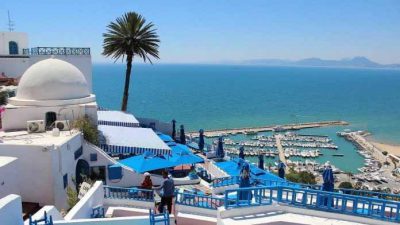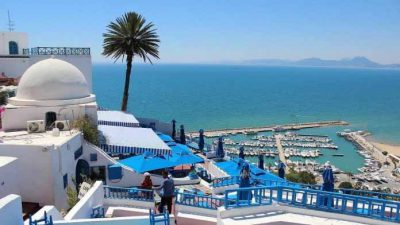Tunisia and UK launch Sustainable Tourism Charter
As tourism in Tunisia grows, regional pacts aim at combatting the resultant pollution while supporting local economies
November 27, 2019


The British Embassy in Tunisia announced a UK/Tunisia Sustainable Tourism Charter this week in Hammamet, one of the most popular tourism resorts for British visitors to Tunisia.
The Charter came through a partnership with the Municipality of Hammamet, the Ministry of Tourism, ABTA, TUI, ANGED and the Federation of Tunisian Hoteliers as an action showing leadership in creating more sustainable and environmentally-friendly tourism industry in Tunisia, responding to the increasing priority that British and other foreign tourists are placing on the environment when making their holiday choices.
According to WWF, nearly 600,000 tons of plastic is dumped into the Mediterranean Sea every year costing the Tunisian economy $20 million due to the impact on tourism, fishing and navigation. Goals set by the Charter are intended to help address this issue.
The Charter will deliver concrete results including:
– The discontinuation of disposable plastic cups and cutlery in hotels by March 2020 and the ending of plastic drinking straws by December 2019;
– More responsible disposal and recycling of waste with tour operators encouraging hotels to attain a Global Sustainable Tourism certificate by December 2020 and the production of a work plan for the Hammamet Municipal Council and central government by March 2020; and
– Support the local economy with more opportunities for local and regional artisans to sell goods to guests as well as strengthened promotion of local food in hotel restaurants by March 2020.
“I am pleased to launch this project and hope it will be rolled out to other areas of Tunisia, helping preserve the beauty of this country. This will not only appeal to British tourists but also provide economic benefits for Tunisian businesses. The reduction of plastic waste is a crucial element of the UK government’s work to protect the world’s oceans and ensure we leave a cleaner planet to the next generation,” said UK Ambassador to Tunisia, Louise de Sousa.
Tourism is critical to Tunisia’s fiscal landscape, accounting for some eight percent of the country’s GDP. From January through June, Tunisia’s tourism industry generated $692 million, up 42.5% from the same time frame in 2018 according to government figures. According to the Department of Commerce’s International Trade Commission, approximately eight million tourists visited Tunisia in 2018, up over 17% from the previous year.




